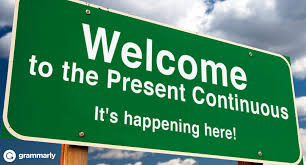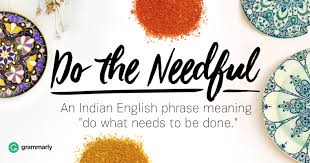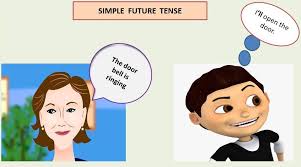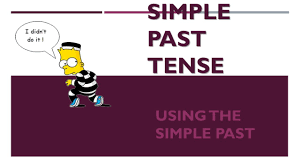The sentence formation follows:
| Singular Number | Plural Number | |
| 1st Person | I am eating = I’m eating | We are eating = We’re eating |
| 2nd Person | You are eating = You’re eating | You are eating = You’re eating |
| 3rd Person | He is eating = He’s eating | |
| She is eating = She’s eating | They are eating = They’re eating | |
| It is eating = It’s eating |
Uses of The Present Progressive (Continuous) Tense:
- For an action happening at the time of speaking: She is weeping. I am wearing a scarf as it will look good. Why are you complaining me for the act which I did not do?
- For an action happening now, but not necessarily at the time of speaking: I am reading a novel in which the girl marries her bodyguard. (I may not be reading at the moment of speaking, but it means ‘now’ in a more general sense.) My sister is learning French and teaching English. (She may not be doing either at the time of speaking)
- For a definite arrangement taking place in the near future (it refers to the immediate plans): Our company is opening up a new branch in Toronto next month. My friends are coming tonight, and I am taking them to the theatre.
- With always, especially for obstinate habits – something which persists and annoys: My dog, Jericho is very silly; he is always jumping on the kitchen platform for human food. I know you very well. You are always losing your keys.
- Certain involuntary actions are not usually used in the continuous tenses:
- Verbs of senses/perception: hear, notice, recognize, see, smell
However, there is certain deliberate use of senses, such as listen, gaze, look (at), observe (= watch), watch and stare and of course, we can use them in the progressive tense:
I am watching this place carefully, but don’t see anything unusual.
Rita is listening to the IELTS tape, but she has put on the headphones so nobody else hears it.
- Verbs of emotions and feelings: admire (= respect), adore, appreciate (= value), care for, desire, detest, dislike, fear, feel, hate, hope, loathe, love, mind (= care), respect, prefer, refuse, value, want, wish
Some verbs can also be used in the progressive tense depending upon the context (deliberate actions). For example, admire means to look at with admiration, value means to decide the worth, appreciate means to increase in value over a period of time, enjoy and at times love/like means to enjoy, and hate means the opposite. Yet it is safer to use the simple tense with love, like and hate:
Do you like your new job? How are you liking your new job?
I hate touristy places, but I am enjoying this place for some unexplained reasons.
I love eating burgers, but I don’t know why I am not loving it today.
- Verbs of appearing: seem, look, appear
It seems acceptable, so you are good to go.
She looks beautiful, but today she is looking stunningly a knockout girl.
- Verbs of thinking: agree, appreciate (= understand), assume, believe, expect (= think), feel (= think), feel sure/certain, forget, know, mean, perceive, realize, recall, recognize, recollect, remember, see (= understand) see through someone (= penetrated his attempt to deceive) suppose, think (= have an opinion), trust (= believe/have confidence in), understand
I do not agree with you on this point. And I assume you have a long way to go yet.
I see through his devious plan and also feel certain that he won’t be successful in it.
- Verbs of possession: possess, own, owe, belong
How much does she owe you?
Do you own this bungalow?
Did you know?
Some native speakers and singers do not pronounce ‘ing’ entirely, but they pronounce only ‘in’ and omit ‘g’. For example, “Quit playin games with me” instead of “Quit playing games with me.”
There is also a non-standard short form for am not, is not, are not, have not and has not. It is ain’t. For example, “Quit playin games with me.” ~ “No, I ain’t.”



